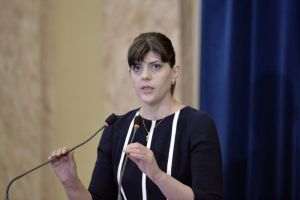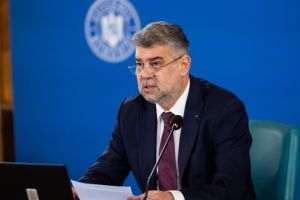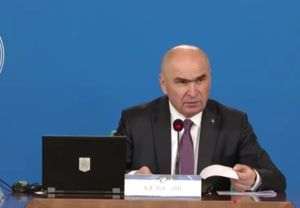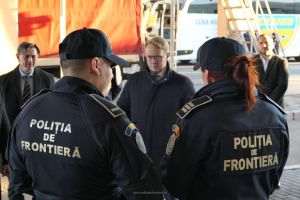The referendum on the redefinition of marriage in the Constitution has split society into two large camps, one that supports the traditional family and one that supports (sexual) "tolerance and diversity" all the way through. The two sides are not monolithic, the former includes Christians, supporters of the coalition in power (PSD - ALDE), people who don't acknowledge sexual minorities, and the other includes people against any restrictions, as well as citizens who see this referendum only as a pointless politicized action which they want to sanction.
The stake of these two days is to convince at least 6 million voters to show up to vote, so that the referendum gets validated, otherwise, regardless of its outcome, the entire action will be null and void.
The referendum on redefining of marriage in the Constitution will take place on October 6 and 7, from 7:00 to 21:00. The question that will be addressed to citizens and to which they have to answer with "yes" or "no" will be: "Do you agree with the Law on the Revision of the Romanian Constitution in the form adopted by Parliament?". The question has in turn raised many concerns: is it clear enough for people ?, is it a trap ?
• Politicians are getting involved, but only to inform, not to influence
Whereas in the initial phase politicians in the government coalition have expressed their support for the amendment of the Constitution through all channels, later, after the visit by PM Viorica Dăncilă in Brussels, when they have been urged not to get involved in any way in the campaign, they have taken a step backwards, but not back.
The president of the PSD, Liviu Dragnea has insisted that the PSD would not campaign for the referendum, but instead provide information, in order to help people understand what the revision of the Constitution is proposing, since the question on the voting ballot is rather unclear: "It is important for us as a social-democratic party to organize actions for the information of the population concerning the referendum and we have asked them to get involved in this action. (...) The prime-minister said (in Brussels - ed. note) very clearly what we have discussed in the Permanent Office of the party, namely that this is what the PSD will do: take action to inform the population, which is fair". Concerning the information campaign, Liviu Dragnea said: "We need to inform the population concerning the provisions of the law which has been passed in the Senate, in other words what is the goal behind the amendment of the Constitution, because there are people who haven't understood. The question that is put on the voting ballot is rather unclear and we need to help people to know what they're voting for. (...) We want to help Romanians understand this approach".
ALDE president Călin Popescu Tăriceanu also said that his party will not get involved in the campaign for the referendum, saying that he would tell his sympathizers to vote according to their conscience: "ALDE will not get involved in the campaign for the referendum, we will advise our voters to vote according to their own conscience, keeping in mind that the Romanian society is rather conservative and the last poll indicates that 85% of the interviewees would vote in favor of the amendment of the traditional family as the union between a man and a woman, and 77% of the ALDE voters also support this point of view. Sure that things have evolved in some European countries, marriages between same sex individuals are allowed. I don't know if the Romanian society will evolve in the same direction. I think that we need to comply with the freedom of everybody to organize their personal life as they please, perhaps after the referendum we will have to promote a law of the civil partnership".
The founder of the Mişcarea România Împreună (RO+) party, Dacian Cioloş says that: "I can't see what this referendum could bring, nor the debate, the way it is organized and politicized. That is why I do not want to participate in this debate, because unfortunately it is politicized. I don't see the use of this referendum. It's a waste of money".
• No uncertainty over the meaning of the term "spouses"
In the beginning of this month, the Senate has passed, as the decision-making forum, the citizen initiative to revise the Constitution, which claims that family is based on marriage between a man and a woman, not simply "between spouses". The Romanian Constitutional Court later decided that the initiative for the revision of the Constitution complies with the constitutional provisions. The referendum has been requested by the Coalition for the Family, and the initiative signed by 3 million people "plans to remove any ambiguity which the use of the term "husbands" of art. 48 paragraph 1 of the Romanian Constitution could bring when shaping the notion of "family", the relation between the "family" and the fundamental right of man and woman to get married and set up a family", according to the argumentation of the law. "The family is based on the freely consented marriage between a man and a woman, on their equality and the parents' duty to ensure the raising, and education of the children", according to the modification brought back to article 48 of the Romanian Constitution and on which citizens are expected to make a decision in the referendum. President Klaus Iohannis passed, on July 5th, the Law for the amendment and the completion of Law no. 3/2000 concerning the organization and the unfolding of the referendum, after the judges of the Romanian Constitutional Court rejected, on June 19th, the complaint brought by the President as inadmissible.
• Voting bulletins weighing 72.5 tons
The printing of the voting bulletins will be ensured by the State owned Public Corporation "Monitorul Oficial", the voting stamps by the "State mint", and the stickers by "Imprimeria Naţională" (National Printing House). The printing of the voting booths has required 72.5 tons of paper.
Internal affairs minister Carmen Dan thinks that the institutions involved in the organization of this referendum exerted a major effort: "Unlike the electoral processes of the last few years, this referendum will be held over two days, which involves additional efforts from all those involved in its organization. Furthermore, the period we have available for the necessary preparations is shorter, which has led to some specific measures which would allow for the referendum to take place properly, and not affect the citizens' voting rights".
The organization of the referendum for the traditional family will cost approximately 40 million Euros.
• Verbal enthusiasm
For those who are against this initiative things are rather clear, the key word is: boycott. There is also a minority which wants to vote NO, even though they are aware that their vote will be counted in the end. Those who are in favor of the amendment of the Constitution are far more active. "Defend Romania's children", "Our children are their target" are just a few of the slogans seen.
The difference between the verbal enthusiasm and action itself is sometimes a big one. A lady, Cristina H., of Bucharest neighborhood Drumul Taberei, told us how she felt a slight disappointment after she decided to get involved in promoting the referendum. One week ago, the priest from the church where she goes every Sunday has invited the believers to come and receive some flyers which expressed support for the traditional marriage to spread around the neighborhood. More than 50 people expressed their desire to get involved. The next day, only two women showed up to meet with the priest, herself and a former retired Biology teacher, and the priest told them to go to the Patriarchate to receive the flyers. The retiree was one step away from quitting when she realized she had to go there and back using the public transportation. In the end, the two women went, received the flyers and returned to their neighborhood where they were going to disseminate them.
Voting, even in the referendum, involves action, words disappear, stamped papers remain.






























































